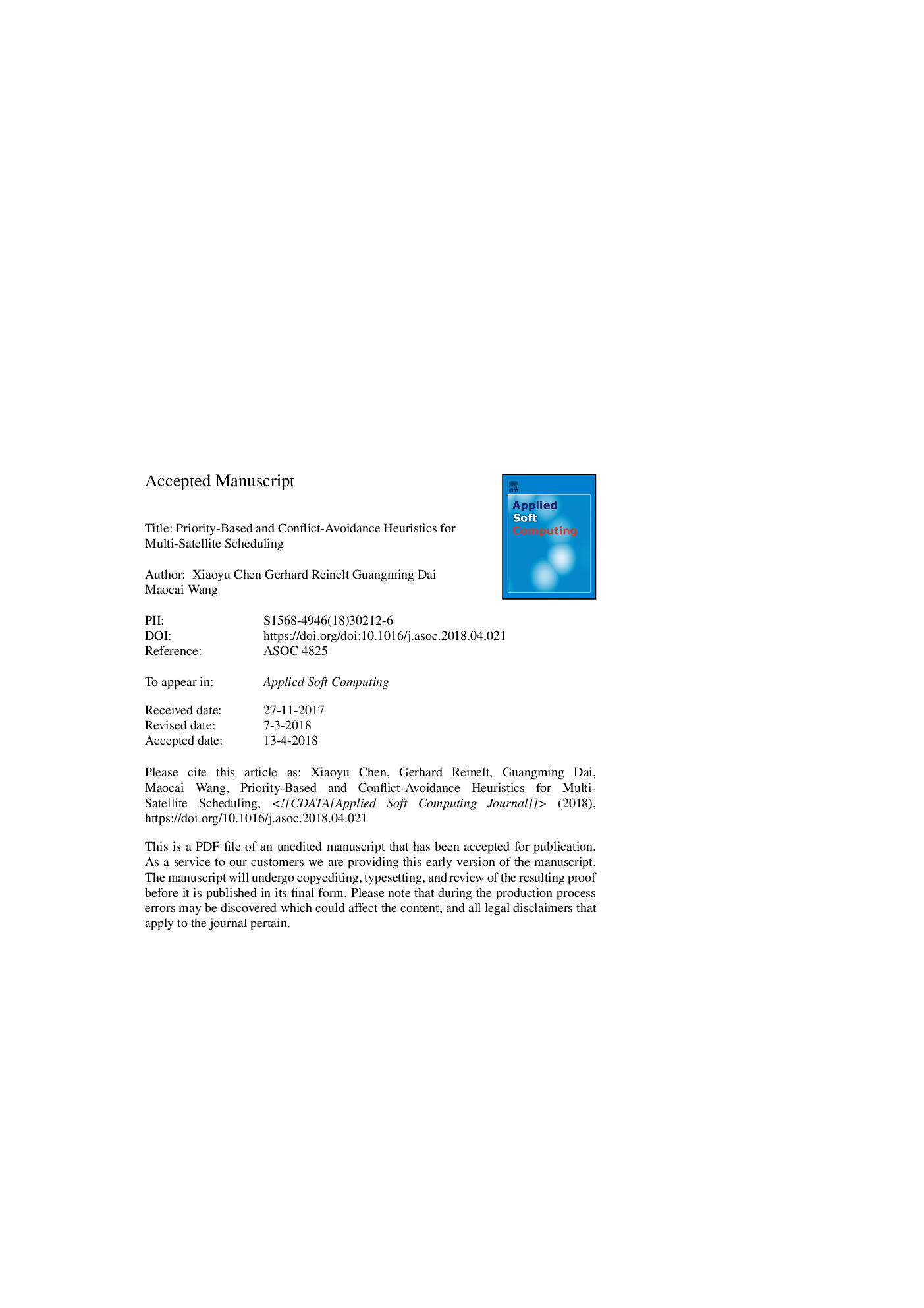| Article ID | Journal | Published Year | Pages | File Type |
|---|---|---|---|---|
| 6903465 | Applied Soft Computing | 2018 | 35 Pages |
Abstract
In this paper we address the problem of multi-satellite scheduling with limited observing ability. As with other computationally hard combinatorial optimization problems, a two-stage heuristic method is developed to obtain high quality solutions in a reasonable amount of computation time. The first stage involves the determination of an observing sequence and the generation of a feasible scheduling scheme. We propose several priority-based and conflict-avoidance heuristic strategies and develop the time-based greedy approaches, the weight-based greedy approaches, and an improved differential evolution (DE) algorithm. The second stage consists of further improvement strategies under different resource contentions, thus improving the scheduling results further. Finally, we design different classes of instances to test the efficiency and applicability of the methods. Computational results reveal that the new proposed methods routinely delivered very close to optimal solutions.
Related Topics
Physical Sciences and Engineering
Computer Science
Computer Science Applications
Authors
Xiaoyu Chen, Gerhard Reinelt, Guangming Dai, Maocai Wang,
